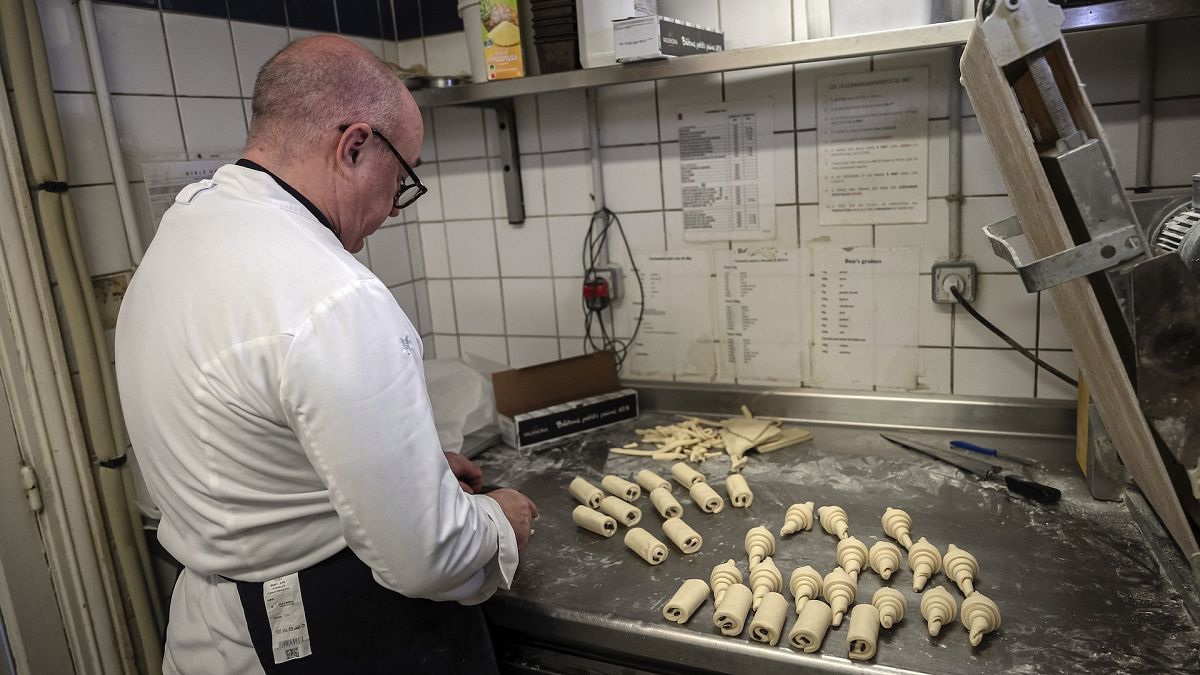As the Christmas festive food treat looms, Europeans find they are facing another everyday expense as the price of butter soars.
Across the 26-member states of the European Union, the price of butter rose 19% on average from October 2023 to October 2024.
That included a rise of 49% in Slovakia, and 40% in Germany and the Czech Republic, according to EU figures with reports indicating the cost has continued to rise.
In Germany, a 250-gramme block of butter now generally costs between €2.40 and €4, depending on the brand and quality.
The increase is the result of a global shortage of milk caused by declining production, including the US and New Zealand, one of the world’s largest butter exporters, according to economist Mariusz Dziwulski, a food and agricultural market analyst at PKO Bank Polski in Warsaw.
European butter typically has a higher fat content than the butter sold in the US. It also is sold by weight in standard sizes, so food producers can’t hide price hikes by reducing package sizes, something known as “shrinkflation”.
A butter shortage in France in the 19th century led to the invention of margarine, but the French remain some of the continent’s heaviest consumers of butter, including for use in baking and sauces.
Polish shoppers hit hard
Butter is so important in Poland that the government keeps a stockpile of it in the country’s strategic reserves, as it does national gas and Covid vaccines. The government announced Tuesday that it was releasing some 1,000 tons of frozen butter to stabilise prices.
The price of butter rose 11.4% between early November and early December in Poland, and 49.2% over the past year to nearly 37 Polish zlotys (€8.7) per kilo for the week ending 8 December, according to government agency, the National Support Centre for Agriculture.
Shoppers have noticed. “Every month butter gets more expensive”, said 77-year-old Danuta Osinska as she shopped at a discount grocery chain in Warsaw.
She and her husband love butter but struggle to pay for medications on their small pensions. They are now eating less butter and more margarine, even though they are less keen on the taste.
“There is no comparison,” Osinska said. “Things are getting harder and harder.”
The cost of butter in Poland has become a political issue. With a presidential election scheduled next year, opponents of centrist Prime Minister Donald Tusk are trying to blame him and his Civic Platform party. Other Poles want to blame the national bank’s governor, who hails from an opposing political camp.
Some consumers decide where to shop based on the price of butter, which has led to price wars between grocery chains that in some cases kept prices artificially low in the past to the detriment of dairy farmers, according to Agnieszka Maliszewska, the director of the Polish Chamber of Milk.
Maliszewska thinks domestic, EU-specific and global issues explain butter inflation. She argues that the primary cause in Poland is a shortage of milk fat due to dairy farmers shutting down their enterprises because of slim profit markets and hard work.
She and others also cite higher energy costs from Russia’s war in Ukraine as affecting milk production.
Economist Dziwulski also thinks droughts may be a factor in reducing production. Falling milk prices last year discouraged investments and pushed dairy producers in the EU to make more cheese, which offered better profitability, he said.
An outbreak of blue tongue disease, an insect-borne viral disease that is harmless to humans but can be fatal for sheep, cows and goats, may also play a role, Dziwulski said.
Olive oil the “butter” of choice for Southern European dwellers
Southern European countries, which rely far more heavily on olive oil, are less affected by the butter inflation – or they just don’t consider it as important since they consume so much less.
Since last year the cost of butter has shot up 44% on average in Italy, according to dairy market analysis firm CLAL. Italy is Europe’s seventh-largest butter producer, but olive oil is the preferred fat, even for some desserts. The price of butter therefore is not causing the same alarm there as it is in butter-addicted parts of Europe.
Meanwhile in Paris, pastry chef Arnaud Delmontel who makes croissants and pain au chocolate for his own patisserie, says he has seen the price of butter shoot up by 25% since September alone.
Some competitors, he says, are turning to margarine, a plan he is not proposing to copy.
“It’s a distortion of what a croissant is”, Delmontel said. “A croissant is made with butter.”

